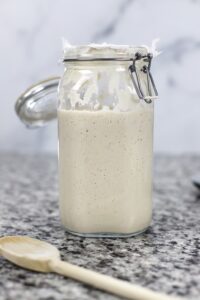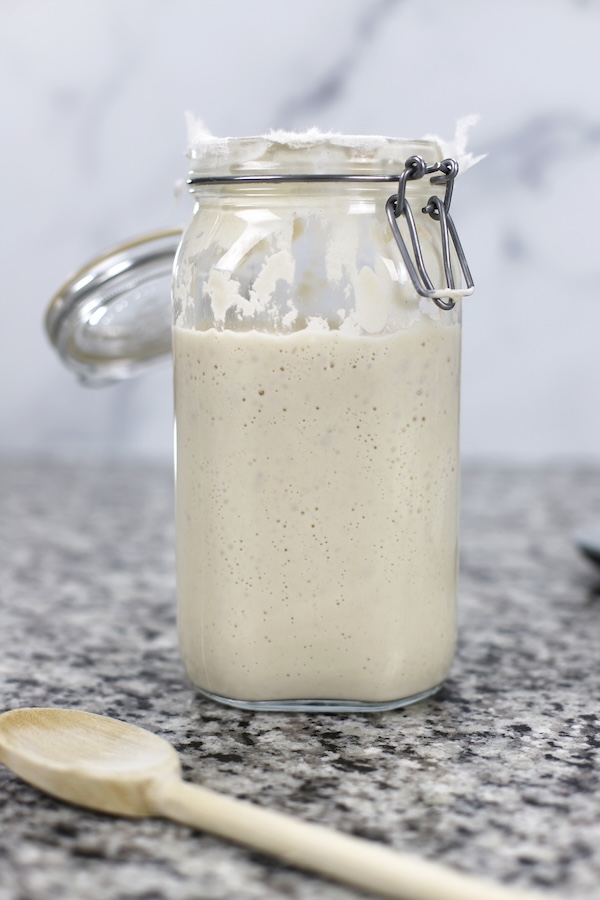How To Maintain Sourdough Starter

Ingredients
- 150 grams flour *see Note #1 below
- 150 grams filtered water
Instructions
Day 1
-
Stir starter with a handle of a long wooden spoon. See Note #2 below.
-
Discard of half of the starter. (Just visually guess. It doesn’t need to be precise.)
-
Place the starter jar on kitchen scale making sure to weigh in grams. Zero out the scale (aka as “Taring” the scale).
-
Feed the starter 150 grams of flour and 150 grams of water, making sure to tare the scale in-between each addittion.
-
Stir with wooden spoon. Cover with paper towels and a rubber band .
Day 2
-
Repeat steps from day 1.
Day 3
-
Repeat steps from day 1.
Day 4
-
On day 4 a mature and well fed starter may be ready to make bread if it has doubled in size and has many bubbles. If not, repeat steps from day 1.
Day 5
-
Chances are that the starter is healthy, well fed and ready to use for bread. Stir well and proceed with bread recipe. See Note #3 below.
Notes
Note #1–
A big part of what determines the personality of your sourdough starter and bread is the type of flour you choose. Different flours have varying protein content and nutrient levels, which can significantly impact the fermentation process. Here are some key considerations:
- All-Purpose Flour– This is my flour of choice and a popular option among many home bakers because it strikes a balance between protein content and versatility, making it suitable for a wide range of baking applications.
- Bread Flour– If you’re aiming for a robust and hearty sourdough flavor, using bread flour with higher protein content is a great option. The extra gluten helps in developing a stronger structure in your starter.
- Whole Wheat Flour– Introducing whole wheat flour into your mix adds healthful nutrients and contributes to a rich flavor profile. Whole wheat flour contains more natural yeast and bacteria, aiding in the fermentation process.
- Rye Flour– Rye flour is known for its distinct flavor and ability to enhance the fermentation process. Adding a small portion of rye flour to your mix can introduce unique characteristics to your sourdough starter.
Note #2– If you did not feed your starter after last making bread, do not discard on day 1 of feeding. However, if you fed it after making bread and then let it rest, please discard and proceed with feeding.
Note #3– There are times when a starter may need a few more days of TLC, such as long periods of not feeding. Don’t worry if it takes a few more days of the discard and feeding process for it to be ready for bread making.

